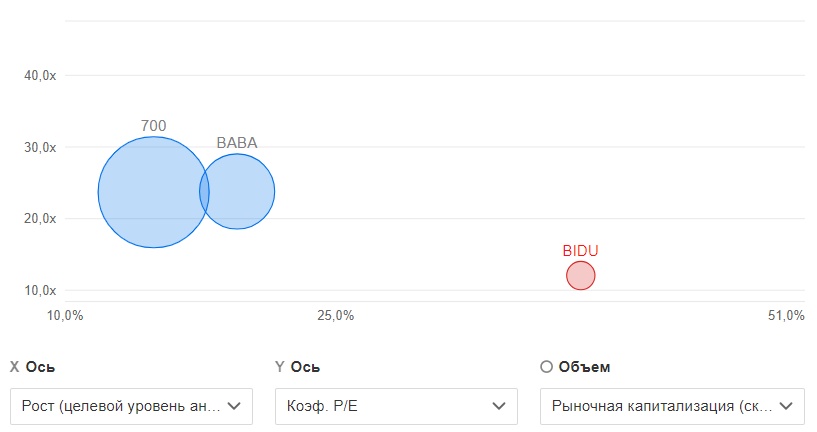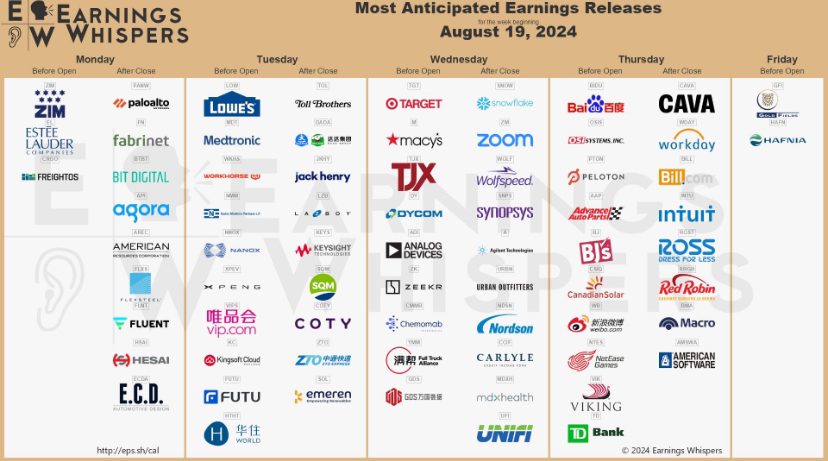Baidu Inc. (NASDAQ: $BIDU (-4.54%)
)
Baidu is a diversified technology company operating the largest search engine in China. A significant portion of its revenue comes from its advertising business. In addition, Baidu owns iQIYI, one of the largest streaming platforms. In recent years, the company has undergone a major transformation, shifting its focus from traditional internet services to artificial intelligence (AI), with a particular emphasis on autonomous driving technologies.
Business Overview
Artificial intelligence is the cornerstone of Baidu's business, especially within its Baidu Core segment, which accounted for over 70% of the company’s revenue in 2021, 2022, and 2023. Baidu Core’s primary income sources include online marketing based on search queries and news feeds, as well as products and services developed through new AI initiatives. These initiatives focus on three key areas:
Mobile Ecosystem: Comprising over a dozen apps, such as Baidu App and ERNIE Bot—a multifunctional AI assistant for PCs and mobile devices. This segment also includes platforms like Haokan and Baidu Post, which serve as open ecosystems for third-party content and services.
AI Cloud: Baidu provides cloud solutions for businesses and the public sector, encompassing IaaS, PaaS, and SaaS products, augmented by AI solutions and personal cloud services.
Intelligent Driving and Emerging Growth Areas: This includes the Apollo Go autonomous taxi service, Baidu Apollo autonomous driving solutions, a joint venture with Geely to develop intelligent electric vehicles, Xiaodu smart devices, and AI chips.
Mobile Ecosystem
The centerpiece of Baidu’s mobile ecosystem is the Baidu App, China’s leading app for search and news, which had 703 million monthly active users as of June 2024—a 4% increase compared to the previous year. The app uses AI to aggregate content and services from third-party apps and websites, creating an almost native experience for users.
Baidu continues to expand its third-party content and service offerings through its Baijiahao (BJH) network, the Smart Mini Programs initiative, and the Managed Page program, which leverage AI algorithms. In Q2 2024, Managed Page accounted for 51% of Baidu Core’s online marketing revenue.
Additionally, the mobile ecosystem includes over a dozen apps like Haokan and Baidu Post, which form a unified platform for search, content consumption, and interaction with creators, publishers, service providers, and sellers. This allows users to easily find solutions and complete transactions.
AI Cloud
Baidu’s AI Cloud consists of two components: (i) cloud solutions for businesses and the public sector and (ii) personal cloud solutions. The business and public sector offerings include a comprehensive range of cloud services, including IaaS, PaaS, and SaaS.
Baidu develops integrated AI solutions for traditional industries and the Chinese public sector, helping clients enhance efficiency in areas such as traffic management, water supply, and quality control. The company also supports the creation of AI applications through the ERNIE API.
As of June 2024, the PaddlePaddle and ERNIE developer community grew to 14.7 million members, and the number of organizations and companies using their products reached 370,000.
Intelligent Driving
Baidu is actively advancing its autonomous driving initiatives, unlocking significant market opportunities. The Apollo Go service continues to deliver impressive results. In Q2 2024, it completed approximately 899,000 rides, a 26% year-over-year increase. As of July 28, 2024, the total number of rides exceeded 7 million.
On June 18, 2024, Apollo Go began offering fully driverless taxi services across most of Wuhan’s municipality—a milestone for the company. In 2024, large-scale trials of the sixth-generation RT6 autonomous vehicles also commenced.
Growth Drivers
ERNIE Bot: The ERNIE Bot chatbot could become a major revenue growth driver. At the end of June, Baidu introduced the upgraded ERNIE Bot 4.0 Turbo, attracting 300 million users. In mid-June, negotiations between Baidu and Apple resumed regarding potential AI collaboration in China. Given restrictions on ChatGPT in China, such a partnership could be significant.
Autonomous Driving: The Apollo autonomous vehicle project is garnering substantial attention. According to Fortune Business Insights, the autonomous driving market is expected to grow at a CAGR of 32% over the next six years, reaching $39 billion by 2030. Baidu, through its Apollo Go service, is well-positioned to benefit from this growing market.
Strong Position in AI and Cloud Services: The company’s AI-driven cloud services are experiencing rapid growth. Baidu is heavily investing in research and development in AI, including improving its search engine, building cloud platforms for machine learning, and creating intelligent solutions for various industries. These efforts help the company diversify its revenue streams and reduce reliance on its advertising business.
Low Valuation Compared to Peers
Compared to other Chinese tech giants like Alibaba and Tencent, Baidu’s stock trades at lower multiples, making it more attractive in terms of undervaluation.
Target Price
- Ticker: BIDU
- Current Price: $BIDU (-4.54%)
Target Price: $131.77
Risks
Risks of the VIE Structure
Baidu, Inc. is not a company that directly operates businesses in China but is incorporated in the Cayman Islands as a holding entity. Its main activities in China are conducted through subsidiaries and affiliated entities known as Variable Interest Entities (VIEs). These entities are utilized to comply with Chinese regulations that restrict direct foreign investment in certain sectors, such as internet services, telecommunications, and mobile app distribution.
Baidu does not directly own the VIEs but controls them through several key contracts with formal Chinese owners. These agreements enable the company to manage the operations of the VIEs and extract economic benefits. Key contractual arrangements include:
- Voting Rights Assignment: Agreements grant Baidu influence over major VIE decisions, such as management appointments and business strategies, despite not holding direct equity.
- Equity Purchase Options: These options allow Baidu to acquire VIE shares from nominal shareholders if laws are amended to permit direct ownership.
- Operational and Management Agreements: Baidu manages the day-to-day operations of the VIEs, including financial control, contract negotiations, and strategic planning, through contractual arrangements.
The formal owners of the VIEs are typically Chinese citizens, often senior executives or board members of Baidu. Although they legally own the VIEs, their rights to control and manage these entities are assigned to Baidu via the agreements.
What is the risk?
- Legal Uncertainty: If nominal owners fail to uphold their contractual obligations, enforcing these agreements may be difficult. As the VIE structure has not been rigorously tested in Chinese courts, it is unclear how enforceable these contracts would be in case of disputes. This uncertainty jeopardizes Baidu’s control over its assets.
- Regulatory Changes: Future legal changes in China could impact the validity of VIE structures. For example, new laws could classify such arrangements as direct foreign investments, leading to penalties or even the loss of Baidu’s control over its VIEs. Investors could then be left holding shares in an offshore company without any rights to Chinese assets or profits, potentially resulting in a total loss of investment.
Risks of Delisting
Baidu also faces delisting risks tied to regulatory requirements in the United States:
Holding Foreign Companies Accountable Act (HFCAA): This act mandates that Chinese companies listed on U.S. exchanges comply with U.S. auditing standards. If Baidu fails to meet these standards, its shares could be delisted from U.S. exchanges.
Geopolitical Risks: Escalating trade and political tensions between the U.S. and China exacerbate risks. Sanctions against Chinese tech firms could limit Baidu’s access to technologies and markets, negatively affecting its valuation and operations.
Conclusion
In my view, Baidu Inc. offers an intriguing investment opportunity due to its strategic direction, vision, and current valuation. The company's shares are trading at 2013 levels, making them particularly attractive. Despite the existing risks related to geopolitics and its business structure, Baidu's growth potential remains significant.
Follow me to stay updated on the latest trends in technology and investments.
Feel free to share your comments and reactions if you find this format interesting!

























